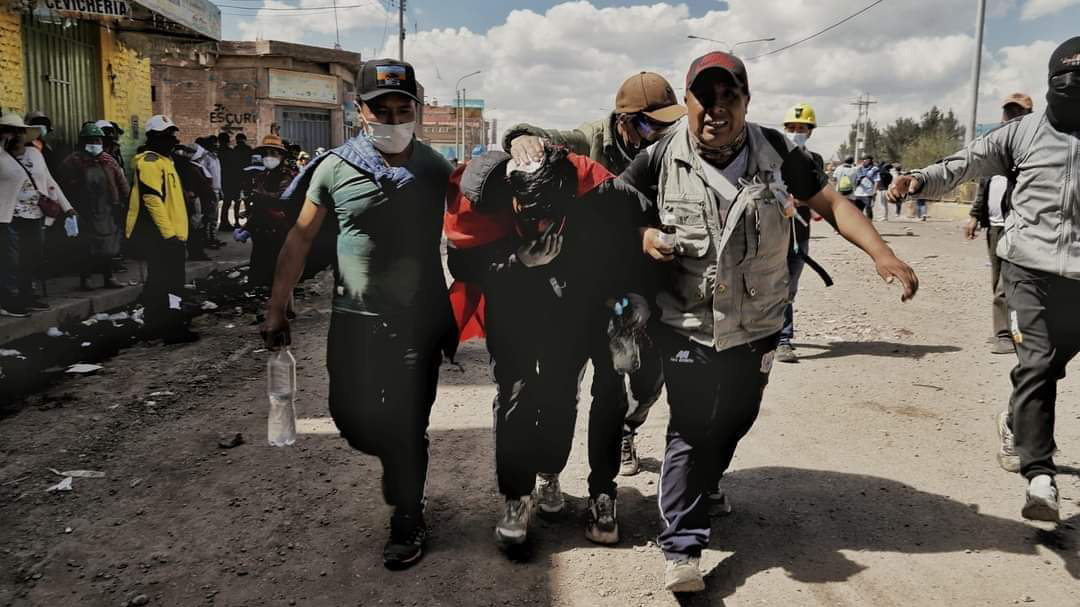PERU: Security Forces Massacre Protesters
By Tanya Wadhwa, journalist


On January 9, Peruvian security forces brutally repressed an anti-government protest in Juliaca, a city in southern Peru’s Puno region, killing at least 17 protesters and leaving at least 68 others severely injured. The dead included at least two teenagers.
According to reports from local media, Peruvian police and military officers opened fire on thousands of protesters who had occupied the Juliaca airport as a part of nationwide protests demanding the release of former left-wing President Pedro Castillo, the resignation of de-facto President Dina Boluarte, the dissolution of the right-wing dominated unicameral Congress, fresh parliamentary elections, and a new constitution through a Constituent Assembly.
Photos and videos shared on social media networks showed victims bleeding from their heads, with pellet wounds on different body parts, people carrying people with severe injuries on their backs and in their vehicles to help them get to hospitals.
This was the second massacre at the hands of Peruvian security forces in one month of social protests demanding structural changes to the country’s political system. With the latest victims, the death toll from state repression of anti-government protests rose to 46. Peru’s Ombudsman Office requested the public order forces to comply with international standards in using force against protests and urged the Prosecutor’s Office to carry out a rapid investigation into the deaths.
The Inter-American Commission on Human Rights (IACHR) condemned the death of people in Juliaca, and urged the Peruvian State to take immediate measures to prevent and punish the excessive use of force in social protests; and to continue generating effective mechanisms of dialog to address social conflict and prevent violence. IACHR announced that it would send another delegation to Peru to evaluate the situation.
The Office of the United Nations High Commissioner for Human Rights (OHCHR) in Peru expressed its “deep concern over the escalation of violence in Peru,” and called for the adoption of urgent “measures to prevent more violence and ensure respect for human rights in the context of peaceful demonstrations.”
Since January 4, tens of thousands of people, mainly from Indigenous and peasant communities, have been taking to the streets and organizing roadblocks in different parts of the country to express their rejection of the Boluarte government, demanding respect for their vote and reinstatement of their democratically elected president.
Castillo was overthrown in a legislative coup carried out by the right-wing opposition majority Congress on December 7, after he tried to dissolve Congress and rule by decree. He was swiftly arrested following his dismissal for allegedly “breaching constitutional order.” On December 15, the Peruvian judiciary extended Castillo’s preventive detention to 18 months on the Prosecutor’s Office’s request, which is investigating him for the crime of rebellion, among others. Puno, Arequipa, Cusco and Tacna are among the regions where massive anti-government protests have been taking place following the resumption of an indefinite national strike after the New Year break.
Following the massacre in Juliaca, the Indigenous and peasant communities along with several popular movements, social organizations, student associations, and trade unions called for the intensification of protest actions against the Boluarte government, and a march to the capital Lima to press for her resignation. In the evening, thousands of people demonstrated in the streets in Arequipa, Apurimac, Cusco, Puno and San Miguel.
Source: The Real News Network from the People’s Dispatch, 01/10/23
